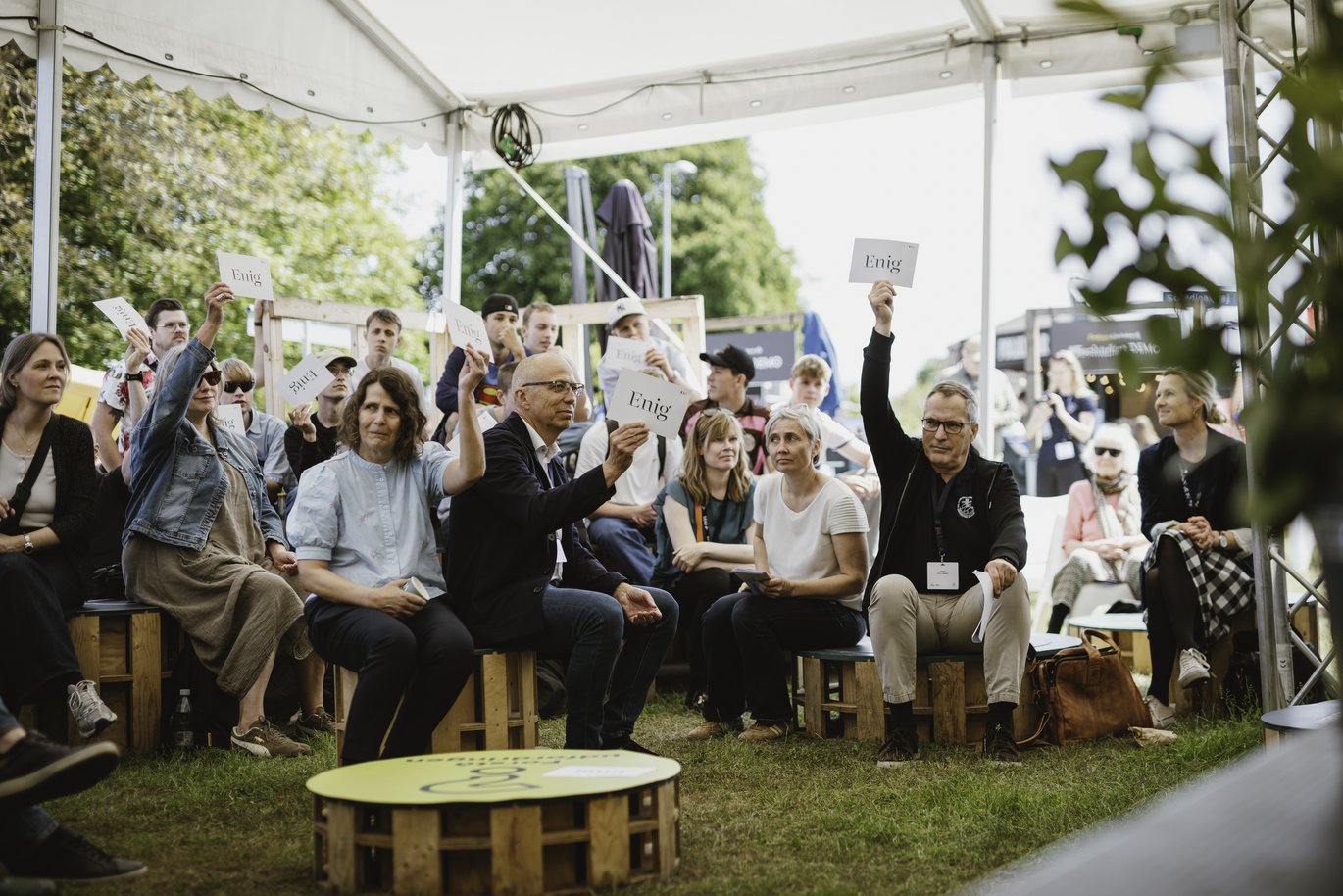Take-aways from Folkemødet – Denmark’s Political Festival
Three days of debate, dialogue, and festivity highlighted the role of research in a complex world. Here are some of the key takeaways Technical Sciences brought home from this year’s Folkemødet.

Thank you to everyone who visited us at Folkemødet, Denmark’s political festival, in Allinge, which offered three days of politics, events, discussions, and public dialogue among the thousands of citizens, politicians, and representatives from businesses, NGOs, and organizations who stopped by.
The Faculty of Technical Sciences hosted a series of discussions and events on Aarhus University’s stages, including the research vessel Aurora and the Tech Tent. Here are some of the highlights we brought home from this year’s Folkemødet.
Brewing and biotechnology
Once again, we won the beer brewing competition—this time with a Nordic IPA brewed exclusively with Danish ingredients.
“It’s fantastic to win again,” said Associate Professor Bo Spange Sørensen, who brewed the beer together with Associate Professor Henning Sejer Jakobsen.
“Brewing is not just about beer; it’s an advanced biotechnological process we use in both teaching and research,” he continued.
Thanks to both for a tasty victory. Blackcurrants and honey from Jeksendalen, bog myrtle from Thy, and elderflower from Mossø provided a flavorful example of how local knowledge and nature can blend with technology and tradition.
Rap and rhythmic research
Audiences queued up for Tech Slam in the Tech Tent, where rapper Flammen and Professor and Department Head Lars Ottosen won a festive and eloquent rap battle between universities.
The combination of science and verse resonated with the audience and showed how complex messages can be communicated with flow.
Do flies have feelings?
In the thought-provoking debate “Are we now supposed to talk about how the flies feel?”, the spotlight was on insect welfare in a rapidly growing new food industry.
Senior Researcher Mette Vaarst reminded us that insects are not a homogenous group:
“They are as different as cows, pigs and chickens. We must take their various needs seriously,” she said.
Carl Valentin from the Socialist People’s Party pointed out the ethics of expanding an industry we don’t yet understand:
“We know some insects pass the mirror test and that bees can learn complex tasks. So maybe we should take a closer look before scaling up.”
Biosolutions in times of crisis
How do we invest wisely when we need to both strengthen resilience and green our society?
That was the core of the debate on biosolutions. Professor Lars Ottosen emphasized that the green transition and increased resilience are not opposites:
“Imagine an energy and food system spread across Europe. That’s resilient and realistic. But it requires technological development and political will.”
The debate showed broad agreement that biosolutions can make Denmark more self-reliant while also creating exports and growth.
A tripartite agreement as a European model
In collaboration with the Dutch Embassy, we also spotlighted the Danish green tripartite agreement. Professor and Department Head Jørgen E. Olesen highlighted that the model builds on a unique culture of collaboration in Denmark:
“We have a will to solve problems together. It’s not just a technical project, but a recognition that we have a real problem.”
The panel discussed how the model could inspire other countries and stressed that it takes both financial backbone and political courage to establish similar agreements.
Innovation on a European scale
During the debate on Europe’s innovation capacity, Dean Eskild Holm Nielsen called for a stronger role for universities in future ecosystems:
“If we don’t take care of the entire engineering field, we’ll lose the foundation for what we call Innovation Denmark,” he said.
He highlighted Aarhus University’s role in the European Water KIC collaboration and emphasized that universities must play a more active role in national and European innovation agendas:
“Universities are the key to connecting knowledge, talents, and partners across borders.”
Thanks for this year
Folkemødet was a reminder of how much knowledge matters, especially when it gets the wind beneath its wings. Thank you to everyone who participated in the debates, asked questions, tasted the beer, and listened to rap.
